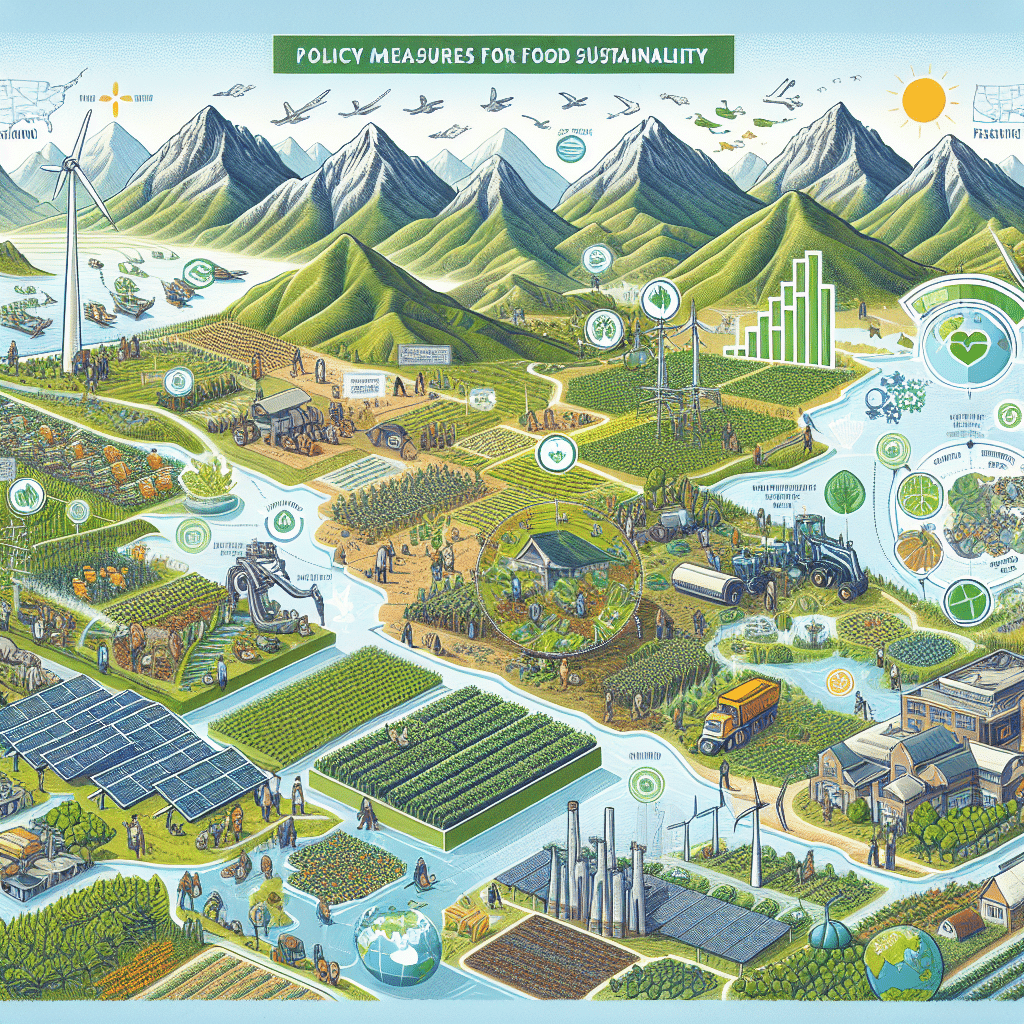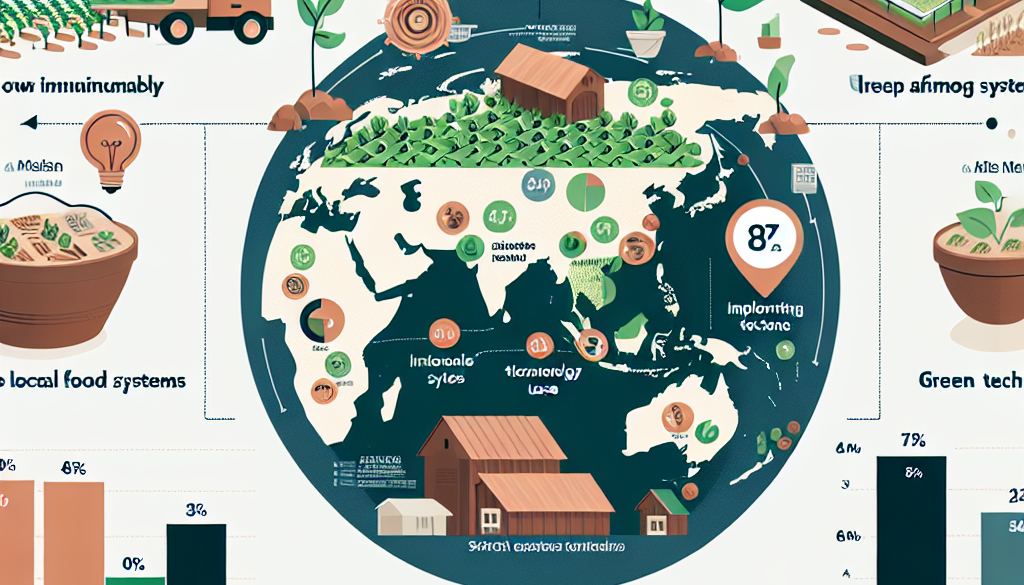Policy Measures for Food Sustainability in APAC
-
Table of Contents
- Food Sustainability in APAC: Effective Policy Measures to Ensure a Greener Future
- Understanding the Challenges of Food Sustainability in APAC
- Policy Measures to Promote Food Sustainability
- Investment in Sustainable Agricultural Practices
- Enhancing Food Supply Chain Efficiency
- Climate Change Adaptation and Mitigation
- Food Security and Nutrition Policies
- Trade Policies to Stabilize Food Prices
- Case Studies: Successful Policy Implementation in APAC
- Conclusion: Key Takeaways for a Sustainable Food Future
- ETprotein: A Sustainable Choice for Protein Needs
Food Sustainability in APAC: Effective Policy Measures to Ensure a Greener Future

The Asia-Pacific (APAC) region, home to over half of the world’s population, faces significant challenges in achieving food sustainability. With a rapidly growing population, urbanization, and economic development, the demand for food has increased, putting immense pressure on natural resources. Ensuring food sustainability is crucial for the region’s long-term economic growth, environmental health, and social well-being. This article explores the policy measures that can be implemented to promote food sustainability in the APAC region.
Understanding the Challenges of Food Sustainability in APAC
Before delving into policy measures, it is essential to understand the challenges that the APAC region faces in terms of food sustainability. These include:
- Population growth and urbanization leading to increased demand for food.
- Climate change affecting crop yields and food production.
- Over-reliance on food imports, making countries vulnerable to global market fluctuations.
- Food waste due to inefficient supply chains and consumer habits.
- Depletion of natural resources such as water and arable land.
Policy Measures to Promote Food Sustainability
Addressing these challenges requires a multifaceted approach. Here are some policy measures that can be implemented:
Investment in Sustainable Agricultural Practices
One of the primary policy measures is to invest in sustainable agricultural practices. This includes:
- Encouraging the use of precision agriculture to optimize resource use and reduce waste.
- Supporting organic farming to decrease the reliance on chemical fertilizers and pesticides.
- Implementing water-saving techniques such as drip irrigation.
- Promoting agroforestry and crop diversification to improve soil health and biodiversity.
Enhancing Food Supply Chain Efficiency
Improving the efficiency of food supply chains is crucial to reducing food waste and ensuring that food reaches consumers in a sustainable manner. Policies could include:
- Developing infrastructure for better storage and transportation of food.
- Implementing food quality standards to reduce losses during transportation and storage.
- Encouraging public-private partnerships to invest in cold chain development.
Climate Change Adaptation and Mitigation
Climate change poses a significant threat to food sustainability. Policy measures to address this include:
- Investing in research and development of climate-resilient crops.
- Supporting farmers in adopting climate-smart agricultural practices.
- Establishing early warning systems for extreme weather events.
Food Security and Nutrition Policies
Ensuring that all individuals have access to nutritious and affordable food is a cornerstone of food sustainability. Policies in this area could involve:
- Implementing social safety nets and food assistance programs for vulnerable populations.
- Promoting dietary diversity and the consumption of locally produced foods.
- Regulating food marketing to encourage healthy eating habits.
Trade Policies to Stabilize Food Prices
Trade policies can help stabilize food prices and ensure a steady supply of food. This includes:
- Reducing tariffs and trade barriers for essential food items.
- Establishing regional food reserves to buffer against supply shocks.
- Encouraging regional cooperation to balance food supply and demand across countries.
Case Studies: Successful Policy Implementation in APAC
Several countries in the APAC region have successfully implemented policies that contribute to food sustainability. For instance:
- Japan’s Food Recycling Law mandates the recycling of food waste, leading to a significant reduction in waste and the creation of valuable compost for agriculture.
- Singapore’s “30 by 30” vision aims to produce 30% of its nutritional needs locally by 2030, through urban farming and technological innovations in food production.
- South Korea’s Rural Development Administration (RDA) focuses on developing sustainable agriculture technologies and has been instrumental in improving food productivity and sustainability.
Conclusion: Key Takeaways for a Sustainable Food Future
In conclusion, achieving food sustainability in the APAC region requires a comprehensive approach that includes investment in sustainable agriculture, enhancing supply chain efficiency, adapting to climate change, ensuring food security and nutrition, and stabilizing food prices through trade policies. By learning from successful case studies and implementing targeted policy measures, the APAC region can move towards a more sustainable and secure food future.
ETprotein: A Sustainable Choice for Protein Needs
In line with the goals of food sustainability, ETprotein offers a range of organic bulk vegan proteins that are non-GMO and allergen-free. Their products, including rice protein, pea protein, and various seed proteins, provide sustainable protein options for the food and beverage industry. With a commitment to quality and sustainability, ETprotein’s offerings are an excellent choice for businesses looking to contribute to a greener future.
About ETprotein:
ETprotein, a reputable protein and L-(+)-Ergothioneine (EGT) Chinese factory manufacturer and supplier, is renowned for producing, stocking, exporting, and delivering the highest quality organic bulk vegan proteins and L-(+)-Ergothioneine. They include Organic rice protein, clear rice protein, pea protein, clear pea protein, watermelon seed protein, pumpkin seed protein, sunflower seed protein, mung bean protein, peanut protein, and L-(+)-Ergothioneine EGT Pharmaceutical grade, L-(+)-Ergothioneine EGT food grade, L-(+)-Ergothioneine EGT cosmetic grade, L-(+)-Ergothioneine EGT reference grade and L-(+)-Ergothioneine EGT standard. Their offerings, characterized by a neutral taste, non-GMO, allergen-free attributes, with L-(+)-Ergothioneine purity over 98%, 99%, cater to a diverse range of industries. They serve nutraceutical, pharmaceutical, cosmeceutical, veterinary, as well as food and beverage finished product distributors, traders, and manufacturers across Europe, USA, Canada, Australia, Thailand, Japan, Korea, Brazil, and Chile, among others.
ETprotein specialization includes exporting and delivering tailor-made protein powder and finished nutritional supplements. Their extensive product range covers sectors like Food and Beverage, Sports Nutrition, Weight Management, Dietary Supplements, Health and Wellness Products, and Infant Formula, ensuring comprehensive solutions to meet all your protein needs.
As a trusted company by leading global food and beverage brands and Fortune 500 companies, ETprotein reinforces China’s reputation in the global arena. For more information or to sample their products, please contact them and email sales(at)ETprotein.com today.














